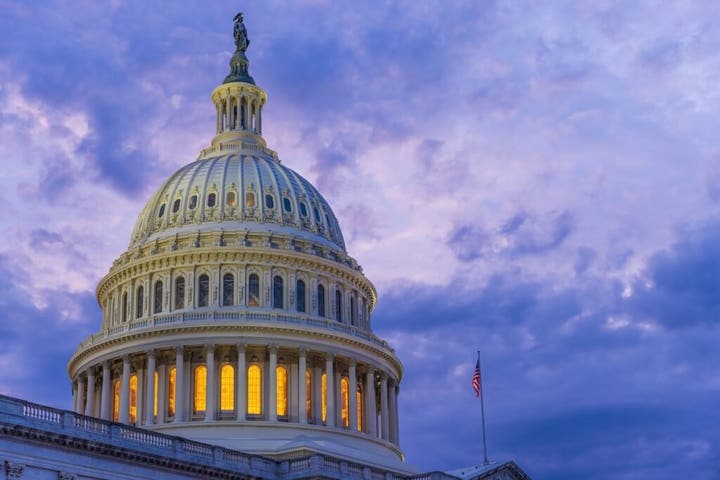Senate Republicans have successfully passed President Donald Trump’s sweeping tax-and-spending bill, a legislative package that could potentially add $3.3 trillion to the national debt. This significant development sets the stage for the bill to move to the House of Representatives for a crucial final approval.
The Senate passed the bill by a razor-thin margin on Tuesday, as reported by Reuters. The legislation, which includes tax cuts, reductions in social safety net programs, and increased spending on defense and immigration enforcement, is now headed to the House. Despite some opposition within his party, President Trump aims to sign the bill into law by the July 4 holiday.
Key Provisions and Controversies
The bill extends Trump’s 2017 tax cuts and introduces new tax breaks for income from tips and overtime pay. However, it also proposes significant cuts, including approximately $930 billion from the Medicaid health program and food aid for low-income Americans. Furthermore, it seeks to repeal many of former President Joe Biden’s green-energy incentives.
This legislation has highlighted divisions among Republicans concerning the $36.2 trillion national debt. It includes a proposal to raise the federal government’s self-imposed debt ceiling by $5 trillion. The Senate passed the measure with a 51-50 vote, with Vice President JD Vance casting the decisive tie-breaking vote after an all-night debate focused on the bill’s financial implications and its impact on the healthcare system.
Political Reactions and Implications
The bill has sparked significant controversy and opposition. Representative Thomas Massie (R-Ky.) warned that its passage could lead to a downgrade of the U.S. credit rating to BBB status, indicating financial distress. Senator Bernie Sanders (I-VT) criticized the bill as a “gift to the billionaire class,” arguing that it would harm millions of working-class American families.
Meanwhile, Elon Musk, CEO of Tesla Inc., has expressed his displeasure with the bill, threatening to launch an “America Party” if Congress approves the spending package. This move highlights the broader dissatisfaction among some business leaders regarding the bill’s economic implications.
Next Steps and Potential Outcomes
The bill now faces a vote in the House of Representatives, where Republicans hold a narrow 220-212 majority. The vote is expected to be close, with Trump actively working to ensure its passage. He described the legislation as a “great bill” and expressed confidence that “it’s going to go very nicely in the House.”
As the bill moves forward, its potential impact on the U.S. economy and social programs remains a point of intense debate. The proposed cuts to Medicaid and food aid could have far-reaching consequences for low-income Americans, while the extension of tax cuts may further exacerbate income inequality.
Looking ahead, the passage of this bill could set a precedent for future fiscal policy under the Trump administration. The ongoing debate underscores the complex balance between stimulating economic growth and managing the national debt, a challenge that will continue to shape American politics in the coming years.
“The bill’s passage could downgrade the U.S. credit rating to BBB status, signaling financial distress.” — Rep. Thomas Massie (R-Ky.)
As the legislative process unfolds, stakeholders across the political spectrum will be closely watching the developments, with significant implications for the 2024 election cycle and beyond.
About The Author
 Cathie Wood Bets Big on Tesla Amid Musk-Trump Tensions, Sells Coinbase Shares
Cathie Wood Bets Big on Tesla Amid Musk-Trump Tensions, Sells Coinbase Shares Top Cryptocurrencies to Watch in 2025: Qubetics, Aptos, EOS, and Astra
Top Cryptocurrencies to Watch in 2025: Qubetics, Aptos, EOS, and Astra Asian Markets Fluctuate Amid Tariff Tensions and Uncertain US Rate Path
Asian Markets Fluctuate Amid Tariff Tensions and Uncertain US Rate Path Jeff Bezos Sells $737 Million in Amazon Stock Amid Lavish Wedding Celebration
Jeff Bezos Sells $737 Million in Amazon Stock Amid Lavish Wedding Celebration Bryan Kohberger Plea Deal Sparks Controversy Among Victims’ Families
Bryan Kohberger Plea Deal Sparks Controversy Among Victims’ Families